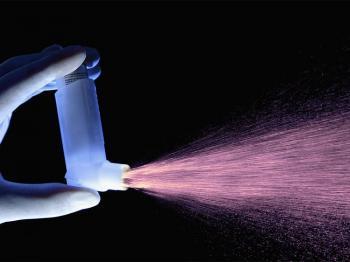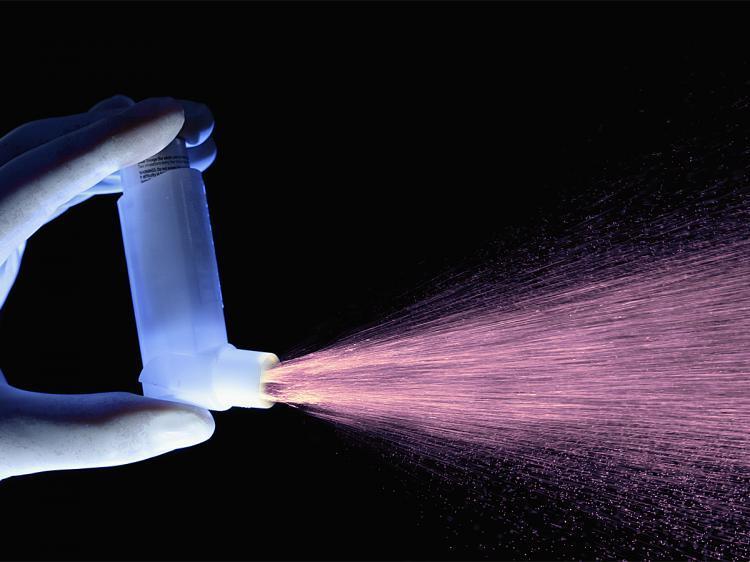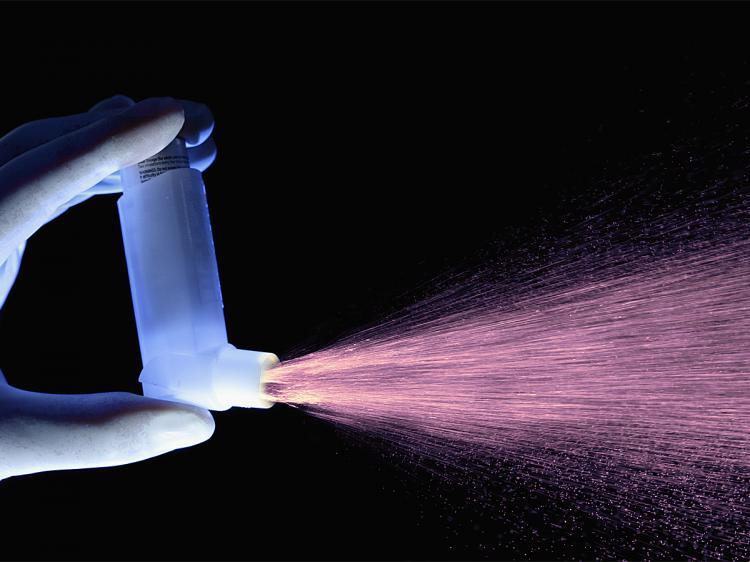Asthma treatments could be revolutionized following the discovery of bitter taste receptors in the lungs that help to open and expand airways, counteracting asthma and other lung conditions, according to a new study published recently in the medical journal Nature Medicine.
Scientists found, serendipitously, that people’s airways contain taste receptors, just like those found on taste buds in their mouths. Taste receptors in both the mouth and airways react to bitter-tasting chemicals and substances like chloroquine, quinine, and saccharin.
However, unlike taste receptors in the mouth, when lung taste receptors are activated, they help to relax airway muscles in a way that could pave the way for new treatments for asthma. In an asthma attack, smooth muscles in the lungs’ airways tighten, cutting off the flow of air and causing wheezing and breathlessness.
“It turns out that the bitter compounds worked the opposite way from what we thought,” said Dr. Stephen B. Liggett, professor of Medicine and Physiology at the University of Maryland School of Medicine, in a statement.
“They all opened the airway more profoundly than any known drug that we have for treatment of asthma or chronic obstructive pulmonary disease (COPD).”
Researchers tested the reaction of the lungs’ bitter taste receptors by spraying mists of bitter substances on mice. They found that this relaxed the animals’ airways, demonstrating a potential breakthrough for the treatment of asthma and obstructive lung diseases.
Scientists found, serendipitously, that people’s airways contain taste receptors, just like those found on taste buds in their mouths. Taste receptors in both the mouth and airways react to bitter-tasting chemicals and substances like chloroquine, quinine, and saccharin.
However, unlike taste receptors in the mouth, when lung taste receptors are activated, they help to relax airway muscles in a way that could pave the way for new treatments for asthma. In an asthma attack, smooth muscles in the lungs’ airways tighten, cutting off the flow of air and causing wheezing and breathlessness.
“It turns out that the bitter compounds worked the opposite way from what we thought,” said Dr. Stephen B. Liggett, professor of Medicine and Physiology at the University of Maryland School of Medicine, in a statement.
“They all opened the airway more profoundly than any known drug that we have for treatment of asthma or chronic obstructive pulmonary disease (COPD).”
Researchers tested the reaction of the lungs’ bitter taste receptors by spraying mists of bitter substances on mice. They found that this relaxed the animals’ airways, demonstrating a potential breakthrough for the treatment of asthma and obstructive lung diseases.






